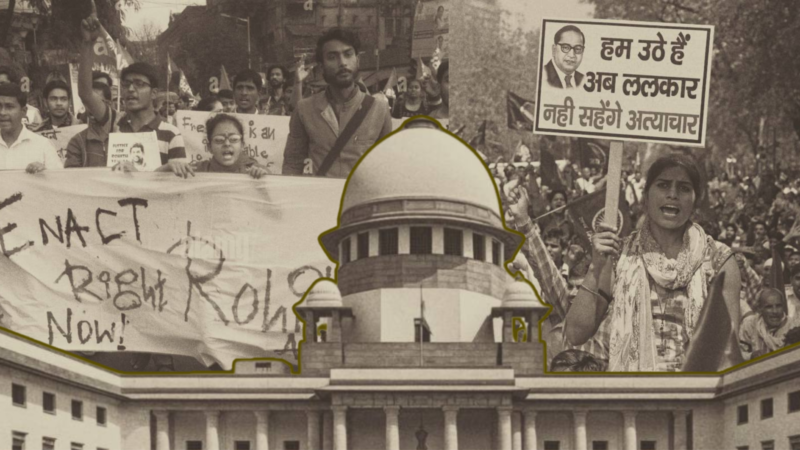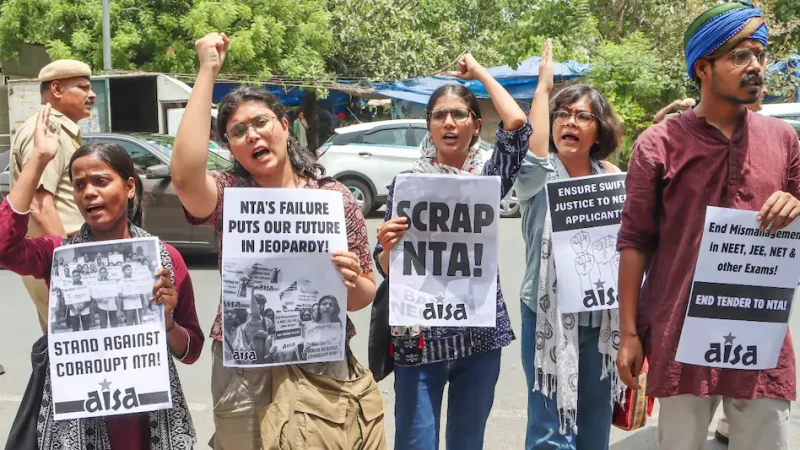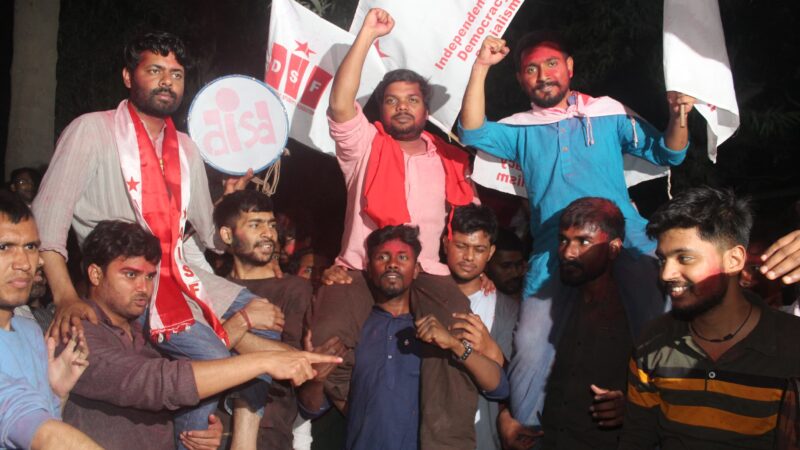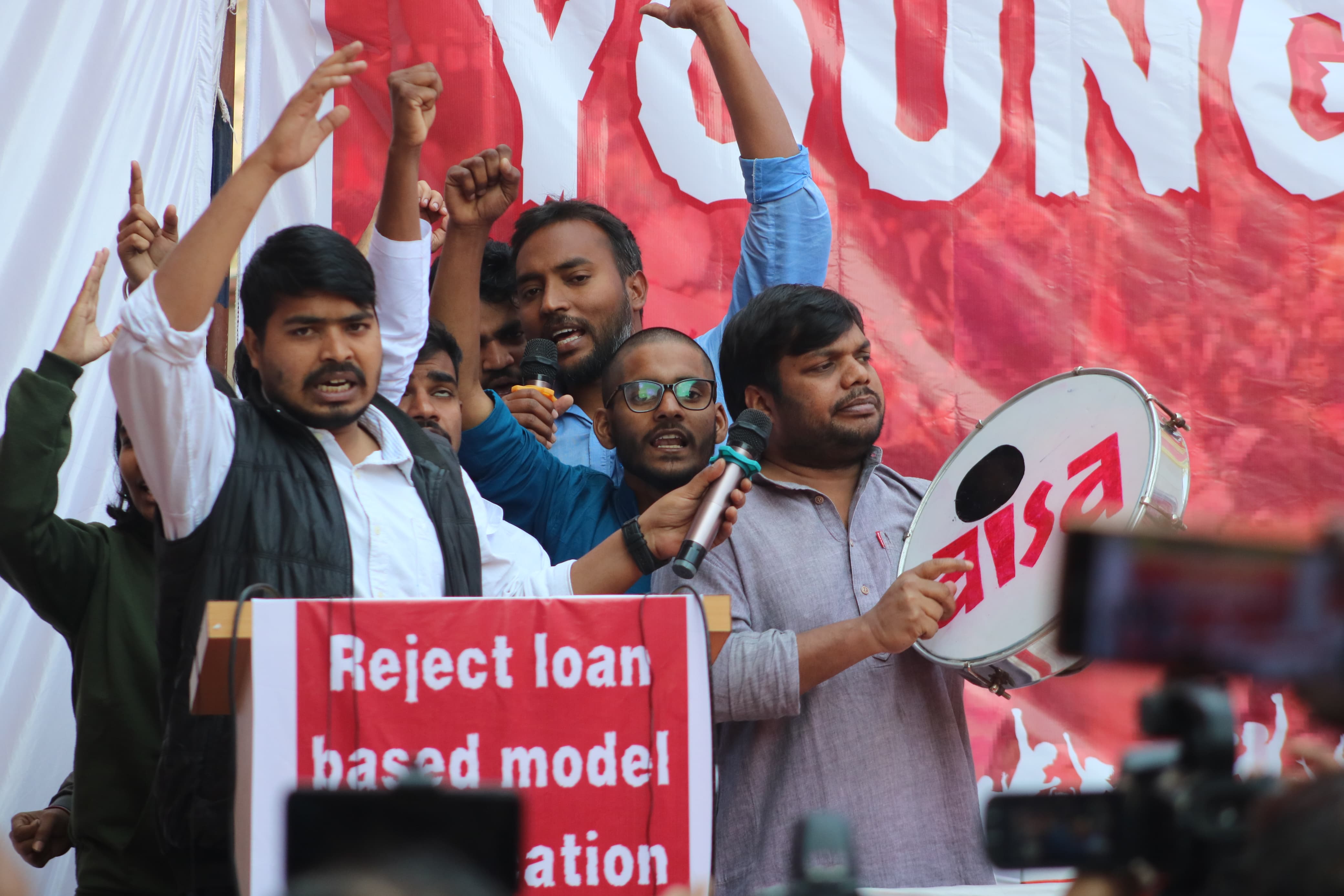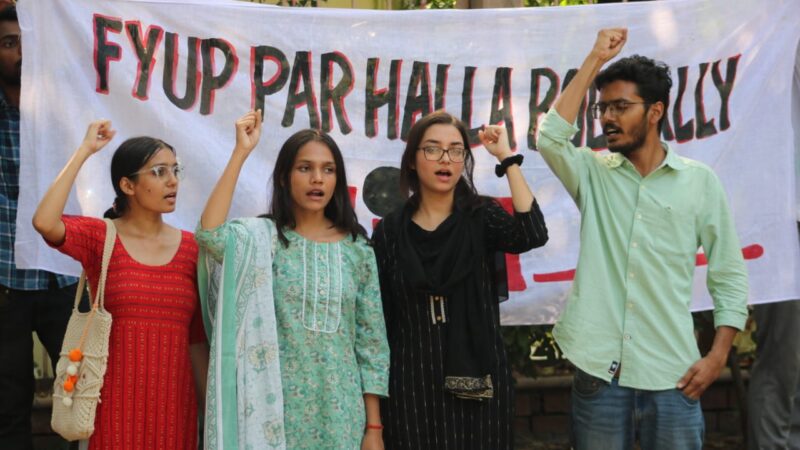NEP 2019 : Response to the National Education Policy 2019
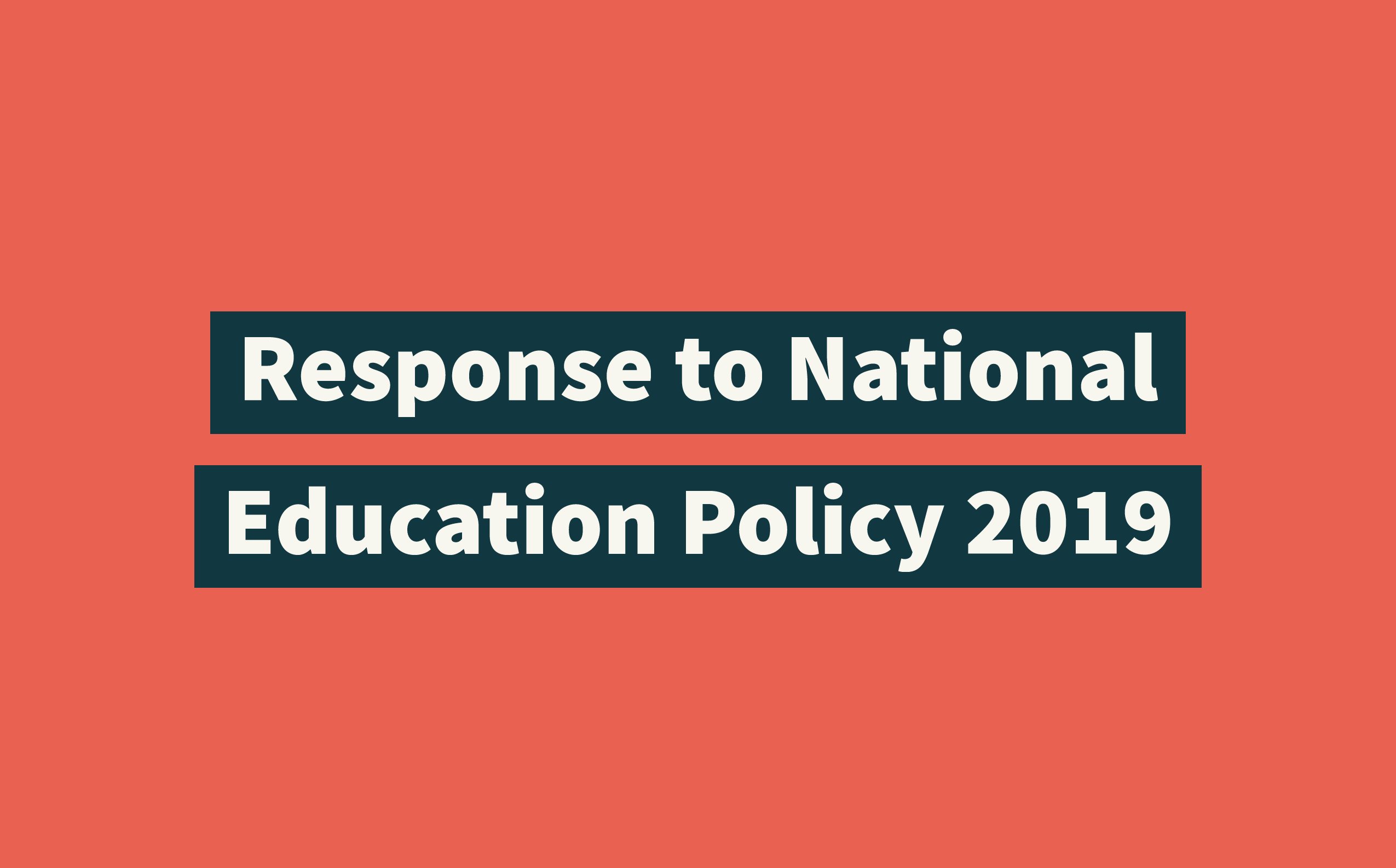
The National Education Policy 2019 has finally been presented to the public for feed-back. To begin with, let us express our strong apprehension about the fact that the draft has been written without consultation with larger student-teacher and academic community. As mentioned in the draft itself, the only student organization that has been consulted in the writing of the draft is the ABVP, the student outfit of the ruling party BJP. No other student organization, elected student union, elected teachers’ association has been consulted in the process of writing the draft. This clearly shows that the draft has been written with an intention to implement the political wish of the present ruling party instead of addressing the pressing need of Indian education system today. The policy perspective of the ruling party to facilitate interest of private capital and global education mafia in Indian education system is thus very clear in the draft. We demand that the feed-back given by larger student-teacher-academic community, elected student unions and teacher associations must be taken with the seriousness that it demands. Because all students and teachers are stakeholders in the education system of India, not merely student organization of the ruling party.
Here is our response to the Draft NEP 2019-
- Roll Back the Design to Shut Down Government Funded Schools: In a country where equity and access to quality school education must be the primary concern of any Education Policy, the NEP 2019 proposes to continue the design of school closure followed by the ruling party in the last five years. Thousands of schools have been closed all over the country in the name of merger in last five years, and the NEP 2019 now renames school closures as ‘Organization of School into School Complexes’. The draft repeats the justification given by the government and NITI Ayog that schools with less enrolment should be closed. It is outrageous to see that rather than holding the Government accountable for systematically robbing Government schools of the needed quality infrastructure and pushing students forcibly to private schools, now the NEP proposes to shut down Government schools altogether. This will only help the private enterprises to thrive their business through the profit from school education.We strongly demand that NOT A SINGLE Government School must be closed. Why should building up school complexes be conditional upon closing down government schools? We demand that the required faculty and infrastructure must be immediately provided to Government schools instead of giving excuse of low infrastructure and low enrolment.
- Ensure Neighborhood Common Schools Funded by Government; Control Mushrooming of High-fee fetching Private Schools: Fundamental right of education can only be guaranteed through neighborhood common school in every area, not by closing them down. The spirit of the need to build up common neighborhood schools to guarantee fundamental right to education was also upheld by the Allahabad High Court in 2018 when it asked public functionaries of UP to send their children in Government schools. Unfortunately, the NEP 2019 gives no commitment to build up common neighborhood schools. On the other hand, it refers to the ‘contribution’ of private schools time and again. The draft also gives a free hand to the private schools to charge whatever fee they want. We demand that the NEP 2019 must guarantee a control over the mushrooming of high fee-fetching private schools.
- No Dilution of Right to Education Act 2019: The draft NEP 2019, time and again mentions the dilution of RTE Act 2019. If at one place it says, the input based approach should be changed to output based approach, in other places it mentions that the needed pupil-teacher ratio may not be maintained because school complexes will take care of exchange of teachers. Shockingly, the draft also prescribes to review the provision of 25% quota for Economically Weaker Section in private schools. We believe the proposal of dilution of the RTE Act is only meant for further benefitting the private schools at the cost of deterioration of the accessible government schools. We demand the proposal to dilute the provisions of RTE Act must be rolled back. Until and unless fundamental right to education is guaranteed through neighborhood common schools and the business of private schools are stopped entirely, the proposal to review the 121(1)(C) must not be rolled back. Rather there must be mechanism to guarantee that the private schools do not indulge in corruption to violate the provision.
- Guarantee Comprehensive Right to education for Children from 3 to 18 Years of Age: It has been a long standing demand of the movement for equitable education that the coverage of RTE Act must be extended from pre-school to the till the end of schooling. Although the NEP 2019 proposes extension of the RTE Act from 3 to 18 years, the mechanism it prescribes to guarantee the rights proves that the real intention of the proposal is only to provide lip service.Firstly, the NEP 2019 proposes to that the Anganwadis will have major responsibility in ensuring the rights. But NO WHERE it mentions the need to recognize the rights of Anganwadi workers. The Anganwadi workers are not even paid legal minimum wages, they are not considered as government employees at all. Without paying them proper wages and giving them worker’s rights, fundamental right of children can’t be guaranteed.The NEP 2019 proposes semesterisation of the course from class 9 to 12. Students will be required to take 5 to 6 courses each semester. This will unnecessarily increase the load of courses on students. Given the present lack of faculty and infrastructure, the students in Government schools are going to suffer the most. Along with it, the NEP 2019 says that multiple exit points will be offered from class 9 to 12. This approach can only guarantee more drop outs after class 8, not right to education.We demand that the proposal for semesterisation must be rolled back and there should be policy to retain students in schools, not to show them the exit way.
- Guarantee provision of regular school with proper hostel and academic infrastructure for students of migrant workers instead of open and distance learning for them.
- No Government College or University Must Be Closed: If the NEP 2019 proposes to close down Government schools in the name of building school complexes, it also is a design to shut down public funded colleges and universities in the name of building ‘large, multidisciplinary’ universities. In Indian higher education access to nearby high quality college or university remains the greatest problem for students to continue higher education. We demand the NEP must categorically mention that no Government funded colleges or universities will be closed down.
- Revoke the Proposal to Invite Foreign Universities at the Cost of Indian Government Funded HEIs: The real intention of the proposal to close down government colleges becomes subsequently clear when the draft proposes inviting foreign universities and making legislative arrangements for the same. The NEP also proposes a redesign of India’s higher education to suit the interest of the foreign universities. We demand to roll back the proposal of making legislation for inviting foreign universities.
- Stop Imposing ‘Self-Financing’ Model of Graded Autonomy for HEIs in the Name of Mission Nalanada: In 2018, the students and teachers in the entire country came down to the streets against the proposal by the then MHRD to impose self-financing and fee-hike in the name of graded autonomy being granted to higher educational institutions. Unfortunately, the NEP 2019 proposes that the graded autonomy formula should continue as proposed. It tries to hide the design of self-financing and fee-hike by changing the terminologies of graded autonomy from category I, II, III universities to Type I, II, III universities. The NEP 2019 also tries to convince us in the formula by introducing names such as Mission Nalanada. But in all these, the NEP proposes a design of implementing ‘financial autonomy’ or self-financing and fee-hike. We demand the must categorically withdraw the UGC 12th February 2018 notification proposing self-financing of courses. We also demand that the NEP must commit that all new courses in Government universities will be fully funded by the Government and there will be no discrimination in funding of Government universities by dividing them in categories. It is the task of the Government to fund universities, not to create hierarchy within them.
- Stop diverting public fund to private HEIs in the name of treating them on par. Roll back the proposal to provide private universities with the funds the proposed National Research Foundation. The proposal to dilute regulatory provisions for building new HEIs is only meant to facilitate mushrooming of private universities, while the NEP provides a design to close down Government universities. We demand that dilution of the provision of regulatory mechanism for building new universities must be rolled back.
- Implement Reservation in Private HEIs: The NEP 2019 time and again justifies the presence of high fee-fetching private universities. As mentioned earlier it also prepares a road map to facilitate at the cost of public funded universities. But NO WHERE does the NEP 2019 mentions the need to implement reservation for SC/ST/OBCs in private universities. We demand there must be provision of 50% reservation for SC/ST/OBCs in private universities as well.
- No to Centralised Political Control though Rashtriya Siksha Ayog under the Prime Minister: The proposal of dismantling UGC and forming several bodies to separate the regulatory, grant giving and standard setting functions is only a pretention of decentralization as the NEP 2019 proposes that the Indian education will be under the apex body Rashtriya Siksha Ayog that will be chaired by the PM himself. This proposal not only violates the constitutional provision of federalism and functioning through cabinet structure, it also is a design of centralized political control of the education system. We demand that the proposal of the Rashtriya Siksha Ayog to be chaired by the PM must be revoked.
- No Ifs and Buts, Commit 10% of GDP to be Spent for Education: The Kothari commission in 1964 had proposed 6% of GDP to be spent on education for an egalitarian education and a self-reliant India. Till now, we have never reached the 6% GDP expenditure mark. On the other hand, the Central Government’s spending on education has reached an all time low in Independent India. To ensure what the Kothari Commission prescribed for India, the present need is to spend 10% of GDP on education to cover for the accumulated disparity of not spending enough till now. This has been a demand of several educationists and the student-youth of the country. The NEP 2019 instead of committing on fully funded Government education, makes funding by the Government conditional upon increased GDP, increased tax-GDP ratio and a 10 trillion dollar economy. All these claims of increase in GDP, tax-GDP ratio and 10 trillion dollar economy are points of political propaganda by the BJP based on fraudulent data. We demand without any conditionality the NEP must commit 10% of GDP to be spent on education.
- The National Education Policy 2019 has finally been presented to the public for feed-back. To begin with, let us express our strong apprehension about the fact that the draft has been written without consultation with larger student-teacher and academic community. As mentioned in the draft itself, the only student organization that has been consulted in the writing of the draft is the ABVP, the student outfit of the ruling party BJP. No other student organization, elected student union, elected teachers’ association has been consulted in the process of writing the draft. This clearly shows that the draft has been written with an intention to implement the political wish of the present ruling party instead of addressing the pressing need of Indian education system today. The policy perspective of the ruling party to facilitate interest of private capital and global education mafia in Indian education system is thus very clear in the draft. We demand that the feed-back given by larger student-teacher-academic community, elected student unions and teacher associations must be taken with the seriousness that it demands. Because all students and teachers are stakeholders in the education system of India, not merely student organization of the ruling party.
To support AISA, Click here to donate.
